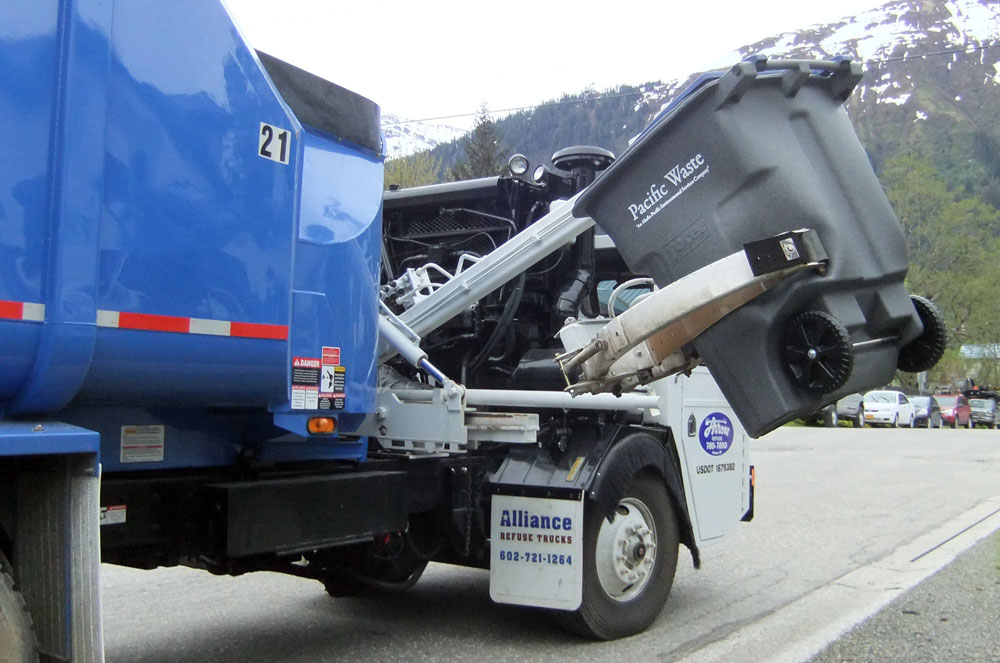
Juneau’s garbage collector wants to increase residential rates nearly 34 percent.
Alaska Pacific Environmental Services, operating in Juneau as Arrow Refuse, has asked the Regulatory Commission of Alaska to approve the tariff revision.
Arrow Refuse General Manager Jeff Riley says the process will take 12 to 18 months so the company has asked the commission to allow a portion of the rate to go into effect Oct. 1st.
Arrow Refuse last year rolled out an automated trash and recycling pickup service in Juneau, charging customers for 48 or 96-gallon carts.
But Riley says the company totally misread customers’ needs as they transferred from the old to the new system.
“We thought that if a customer has one can they’re going to go to a 48 gallon and that container is going to be really light, and if they have two cans, they’re going to go to a 96 and that container will be really light,” he said. “We just totally missed what the customers were going to do.”
Riley says the same thing happened with Juneau’s new recycling program. Instead of renting larger roll carts, most customers are using the smaller, less expensive cans.
“We have about 40 percent participation. It’s awesome. Everybody’s jumping on board with it, it’s just a great success. But what it’s done is it’s driven most of our customers to take a 48-gallon container and they’re packing iT. They’re just really, really heavy,” he says.
In addition, disposal costs at Juneau’s landfill, operated by Waste Management, have gone up $10 per ton. Riley says Arrow Refuse was not able to cover its operating expenses last year.
If the regulatory commission approves the interim rate, a 48-gallon roll cart in the so-called Blue Zone downtown would cost $21.05 a month, an increase of $4.26.
Outside the Blue Zone, the smaller cart would cost $3.67 more per month, to $18.12 in October.
Commercial rates also would increase.
Juneau’s proposed increase is one of several the company is requesting across the state, including 4.54 percent in Dutch Harbor, 13.53 percent in Nome, and 24.11 percent in Ketchikan. The RCA is taking public comments online, found at the links provided in this story.